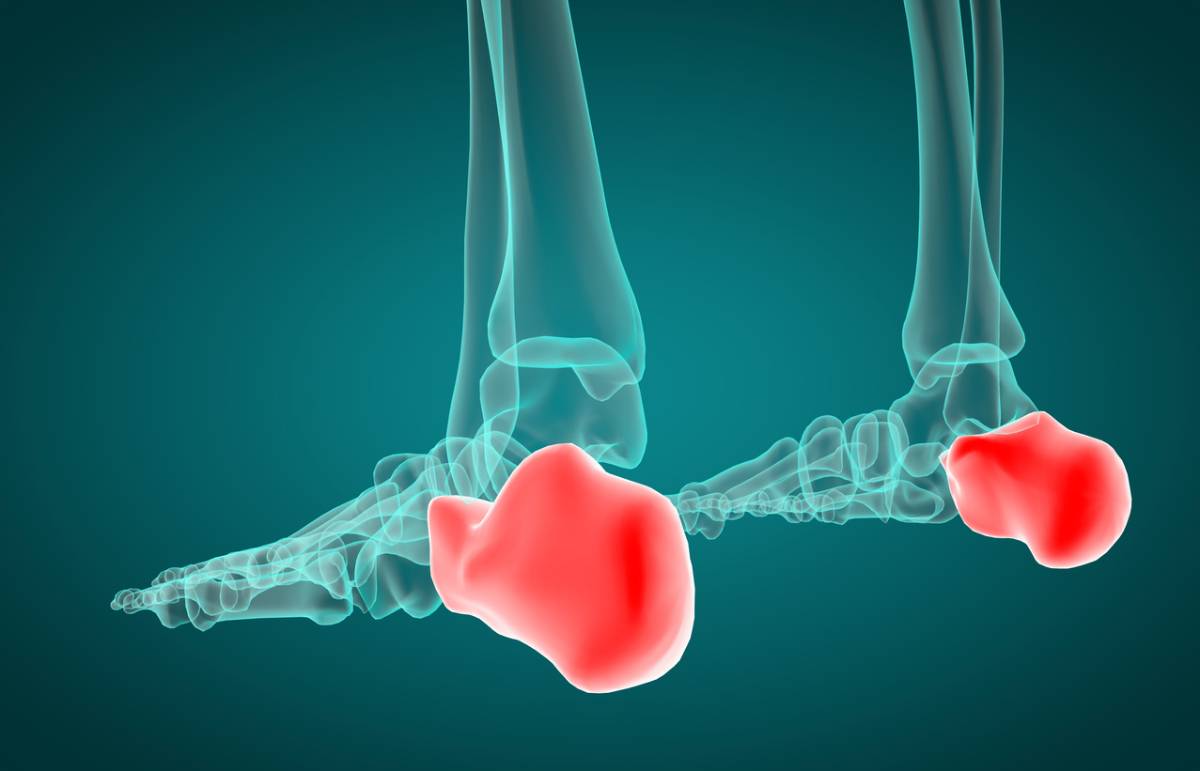Heel pain can be an obstructive and obnoxious issue that has the potential to heavily interfere with an individual’s daily life. Most people will find that their mobility and general happiness dramatically increases when they address this issue. Below, we look at causes of pain in the back of the heel.
However, pinpointing the exact cause of heel pain varies heavily from case to case and can be somewhat challenging. Usually, it takes the eyes of an expert to diagnose correctly. Even then, the problem might be part of a larger medical picture.
Causes of Pain in the Back of the Heel
If you’re suffering from heel pain and aren’t sure why, take a look at this list of possible causes for this persistent issue. It may help you determine whether you need plantar fasciitis outpatient surgery.
Mechanical Issues
Sometimes, simple mechanical issues of the heel structure can cause pain when they are interrupted. Examples include sports injuries and degenerative conditions such as plantar fasciitis. These issues can be exacerbated by wearing inappropriate footwear and engaging in high-impact exercises that stress the system.
Plantar fasciitis
Plantar fasciitis is by far the most common cause of heel pain. In this condition, the plantar fascia becomes inflamed and irritated. This condition tends to produce high levels of pain in the heel in the morning shortly after waking or in periods of inactivity. Modern medicine typically addresses these types of pain through a complex set of physical rehabs.
Calcaneal fracture
A calcaneal fracture is a common fracture that can occur at the level of the foot and is a common condition that develops in serious athletes. This condition has the potential to develop in cases of prolonged weight bearing or as a result of prolonged walking on surfaces.
Achilles tendinopathy
This is a condition that refers to a certain set of “overuse” injuries in which the Achilles tendon becomes irritated and inflamed. Individuals will find that this particular combination of inflammation tends to impair their overall performance and increase the risk of rupturing their tendons.
Neurological Issues
Although it wouldn’t be the first thing one thinks about, sometimes the root cause of heel pain lies in the neurological system. When important nerves become pinched or compressed, irritation and pain often arise. A whole set of other bizarre symptoms are possible due to the complex nature of the nervous system.
Tarsal Tunnel Syndrome
Tarsal Tunnel Syndrome is similar to the more well-known carpal tunnel syndrome, in which the posterior tibial nerve in the ankle suffers from damage, often as a result of extrinsic factors such as repeated pressure or compression. This often expresses itself through tingling, numbness, and burning sensations in the ankle or heel. Sometimes, more dramatic expressions, such as shooting pains and sensations of shock, are also reported.
Rheumatoid arthritis
Rheumatoid arthritis is an autoimmune inflammatory condition where the body attacks its own immune system erroneously. This condition can express itself in any number of ways, and often represents itself through inflammation and stiffness. Down the line, many patients find that they report a reduced level of mobility and range of motion. This can have intense impacts on one’s quality of life.
Peripheral Neuropathy
This is a condition where one’s peripheral nerves suffer from damage from another condition – including health conditions like diabetes, rheumatoid arthritis, and other debilitating conditions. Over long periods of time, these nerves begin to malfunction, leading to a number of health problems.
This type of neuropathy tends to occur in individuals with other types of conditions. For example, in the case of diabetics, high glucose levels can lead to nerve damage. This in turn can produce sensations of heel pain.
Determining the Source of Your Pain
Determining the source of your particular heel pain can be achieved by scheduling an appointment with a heel pain specialist. During this consultation, your physician will inspect your heel and listen while you describe your symptoms. This can help them hone in on what the source of your pain might be.
In addition, your medical background and the way that it interacts with the health of your heel will be discussed. Make sure to point out any information that you think might be important to discuss with your physician. All in all, it’s the best chance that you have to determine exactly what is causing the discomfort and pain in your heel.
The Heel Pain Experts of California
Our institute in California is one of the world’s leading authorities in addressing heel pain in all of its manifestations. If you’re suffering from heel pain and are wondering about how to deal with it, contact the Heel Pain Institute today in order to set up an appointment.
